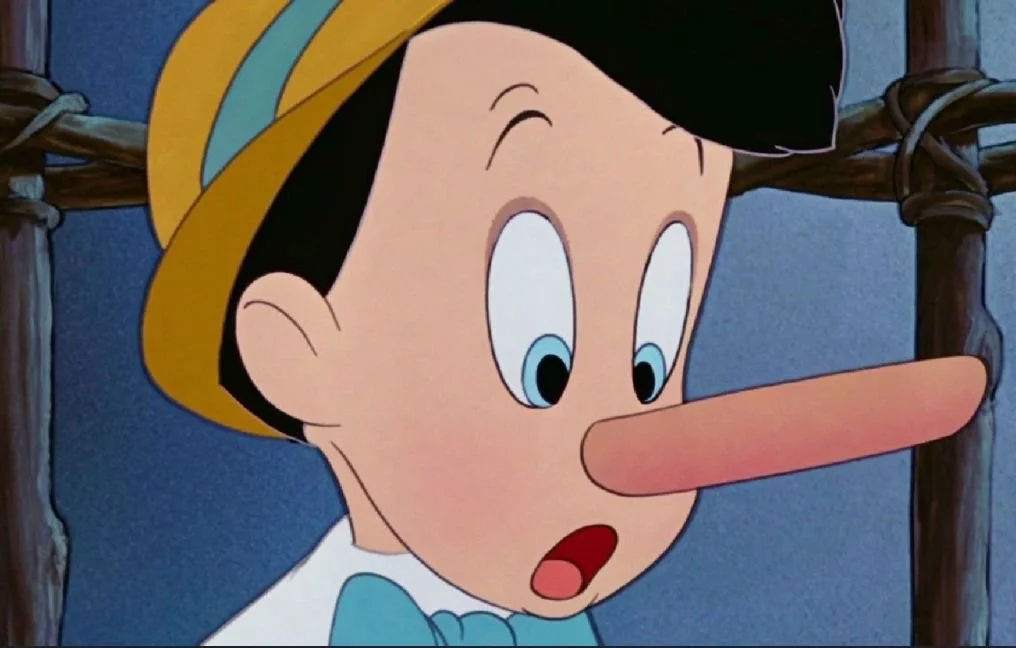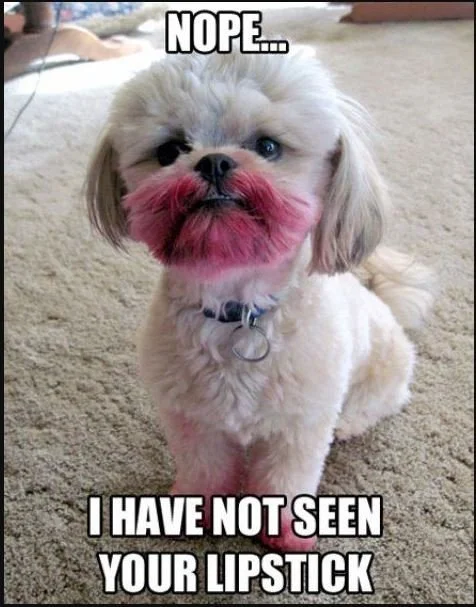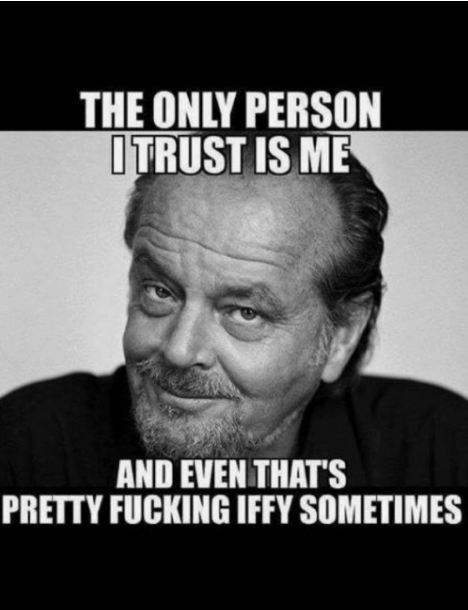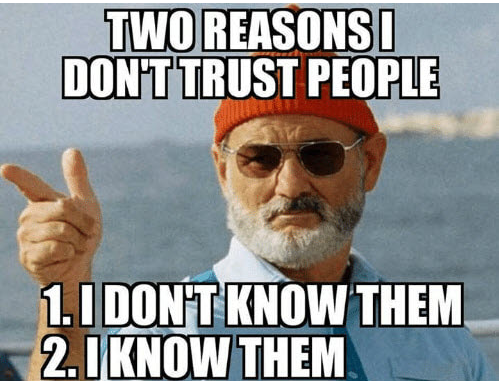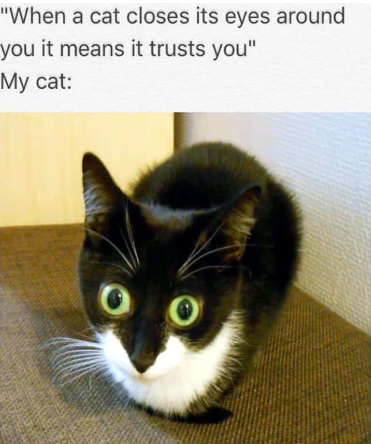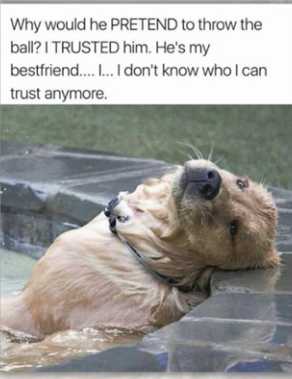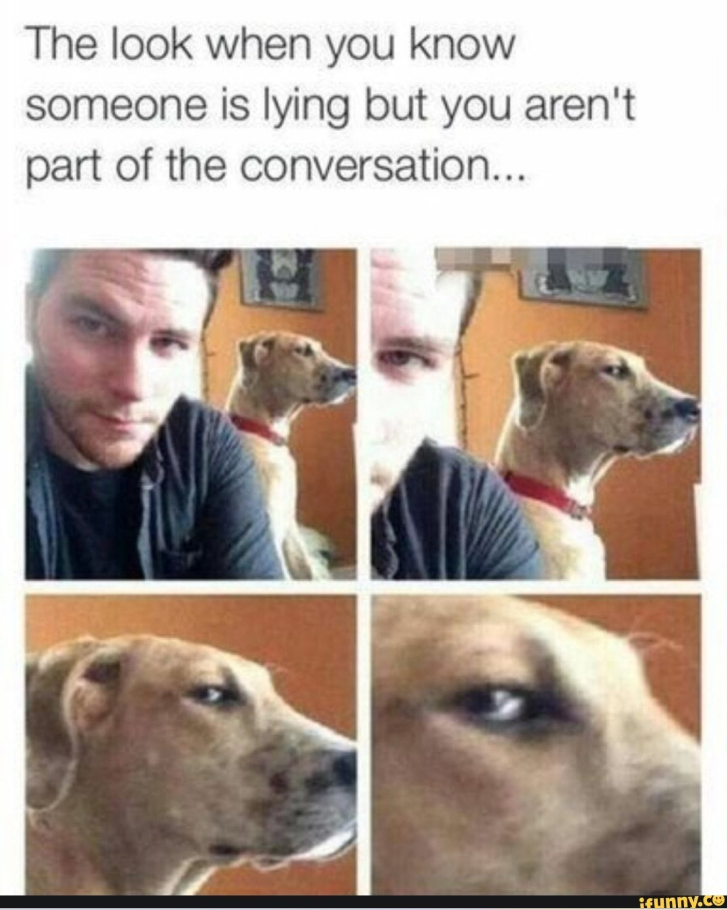In Lies We Trust?
pinocchio
“A lie gets halfway around the world before the truth has a chance to get its pants on. – Winston Churchill
“Trust me.”
“Believe me.”
I don’t know about you, but in my experience, when someone says either of those phrases, my gut instinct often screams: “No! Don’t trust or believe this person.” Turns out, I have good reason.
I’m a Liar — and So Are You
The truth is, we all lie. Even those who claim they never lie.
In his book The Truth About Lying, researcher Robert Feldman — who has spent over 30 years studying deception — found that people lie two to three times in a 10-minute conversation. Yikes. Whether it's your friend, your spouse, a business partner—or even yourself—we’re all lying to each other. Children begin lying as early as age two, usually to avoid consequences. As we get older, lying becomes second nature.
Most of us aren’t even doing it consciously. We often convince ourselves that something is true, and believe it so fully that it becomes our reality.
Why Do We Lie?
People lie for all kinds of reasons:
To avoid punishment, embarrassment, or shame
To gain an advantage—financial, social, or romantic
To protect someone’s feelings or avoid conflict (hello, white lies!)
We say things like:
“I’m fine.”
“Oh, did I forget to mention that?”
And we often mean no harm. But here's where it gets tricky. Feldman’s research also reveals something called the "liar’s advantage": we're only about 50/50 at detecting a lie. Hence, it’s surprisingly easy for people to get away with lying.
We Want to Believe
Let’s face it: we’re not running background checks on everyone we meet. It’s far easier to assume people are telling the truth. In fact, we not only accept lies—we often embrace them.
We also lie more online—via email and instant messaging—than we do face-to-face. The more removed we are from real human interaction, the easier deception becomes.
When people tell us what we want to hear—
“You look amazing!”
“You’re so smart!”
—those compliments make us feel good. But they also make it harder to tell when we’re being misled.
White lies may seem harmless, but they stack up—and can easily snowball into bigger deceptions.
“A lie told often enough becomes the truth.” – Vladimir Lenin
Where Has All the Honesty Gone?
The problem is, we’ve become increasingly tolerant of deception—and that has consequences.
Lying causes stress. Our bodies know when we're being dishonest. Heart rate spikes. We sweat. Our mouths go dry. Voices tremble. These are signals that lying carries risk—risk to our relationships, our reputations, and even our sense of self.
When deception becomes normalized, we lose authenticity in our day-to-day lives. If people are constantly dishonest, how can we know who anyone really is? Over time, this leads to doubt—not just in others, but in ourselves.
And the biggest casualty of all this lying?
Trust.
We don’t trust each other anymore. We don’t even always trust ourselves—I certainly don’t if there’s a box of chocolates anywhere in the house. 😉
“He who does not trust enough, Will not be trusted.” – Lao Tzu
Trust Is the Foundation
All jokes aside, human-to-human trust is the foundation of our relationships and decisions—moment to moment, day by day. Trust is woven into the fabric of society. At the global level, it affects how nations interact. At the personal level, it shapes how we relate to those around us.
And honestly? We have good reasons to be skeptical: AI, online scams, data breaches, fake news, political disinformation, corporate scandals, driverless cars, conspiracy theories…
The list goes on. And trust? It’s incredibly fragile. Built over years. Broken in seconds.
To Trust or Not to Trust?
Whether or not we trust someone is based on a mix of past experiences and contextual cues—processed mostly on a subconscious level.
While we interact, our brains are scanning:
Can I believe what this person is saying?
Do they seem authentic?
Can I count on them?
Do I feel safe with them?
Do I trust my news sources? (God, I really miss Walter Cronkite!)
We’re constantly making risk-based decisions about trust—often without realizing it.
The Pew Research Center has tracked Americans’ trust levels for nearly 70 years. The findings aren’t encouraging:
Only 34% of adults today agree that “most people can be trusted.”
In 1958, 75% of Americans trusted the federal government “to do the right thing.”
In 2024, only 16% of us said the same—a historic low.
“As soon as you trust yourself, you will know how to live.” - Johann Wolfgang von Goethe
Can Trust Be Restored?
How do we move forward when trust has been so deeply fractured among ourselves, in our nation, and around the world?
If we continue to view each other as the enemy, we’ll stay locked in a vicious cycle of distrust, cynicism, and division.
Neuroscientist Sam Harris, in his book Lying, argues that society could be radically improved if we simply told the truth in situations where lying has become the norm.
So where do we start?
With ourselves.
We can’t expect others to trust us if we aren’t trustworthy.
Building trust begins with personal accountability.
Building Our Trust Muscles
It is in our best interests to start building our trust muscles. People who trust others tend to be happier and more satisfied with life, according to recent research.
Here are a few simple ways to become more trustworthy:
Be transparent and authentic—don’t twist facts or hide information.
Follow through on promises—even the small ones.
If you mess up, take responsibility without getting defensive.
Be open to forgiving others when they slip.
Practice empathy—try to see things from the other person’s perspective.
Be someone others can rely on.
Respect boundaries—especially if someone’s been hurt before.
"Trust takes years to build, seconds to break, and forever to repair." – Dhar Mann
Trust: A Two-Way Street
We also need to get better at recognizing truth, now more than ever. That means:
Listening to our gut
Trusting our intuition
Verifying when in doubt
Start noticing those little twinges of guilt when you tell a “harmless” lie. Let them guide you.
Teach your kids the importance of truth—not just with your words, but with your actions. Don’t tell your child to “Always tell the truth,” and then later whisper, “Oh, that’s Aunt Mary calling….tell her I’m not home.”
No one enjoys being lied to. So let’s aim higher. Let’s seek the truth. Live honestly.
Learn to trust yourself, so you can trust others—and be someone they can trust in return.
"Honesty is still the best policy."
Let’s start there.
###
With love and laughter,
Annie @The Positive People Project. 🌞
Please don’t forget to opt-in for positivity and be sure to check your spam and/or promotions (gmail) folders! 👍
I invite you to go back to a time when we seemed to trust one another more…when Billy Joel released “It’s a Matter of Trust.”
And last but not least, I always like to leave you with a smile and a laugh.
Always trust our pets! 😊
